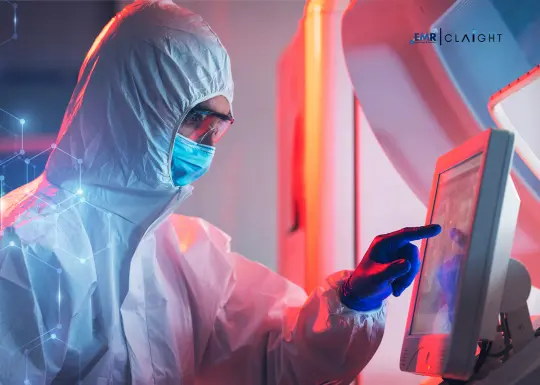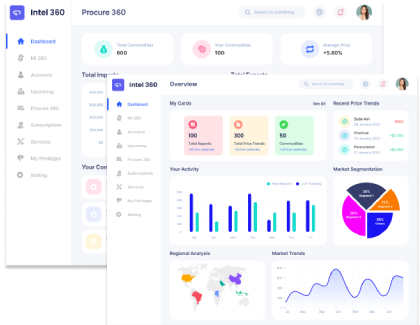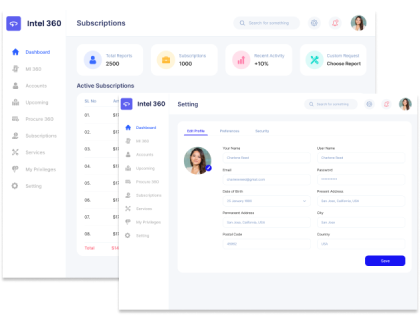The global packaging industry is on the front lines, with food packaging being its largest area of activity. The coronavirus outbreak has caused some of the most significant drops in demand for certain types of packaging in recent times while accelerating growth for others-such as packaging for e-commerce shipments, which are quickly becoming lifelines in this new world. The demand for packaging for groceries, healthcare supplies, and e-commerce transportation has increased significantly. Demand for industrial, luxury, and some B2B-transport packaging declined at the same period.
Consumers continue to rely on the items that are manufactured during quarantine; therefore, the food, beverage, and healthcare industries have seen increased demand. Companies that relied on materials and ingredients from hard-hit areas of the country, such as New Jersey and New York, along with China and parts of Europe, initially struggled to find alternative supply chains. International air freight travel was drastically reduced, limiting resources to supplies available within each country's borders. COVID-19 outbreak at food processing plants, such as Smithfield Foods in Sioux Falls, South Dakota, forced one of the country's largest processing plants to close, completely altering the food supply chain.
Also Read - Global Healthcare Packaging Market
The shutdown, wherein employees were asked to stay at home during the pandemic, has been a major hindrance for this industry. As a result, many packaging plants have shut down or are producing less than before. The food and beverage sector was severely impacted by the pandemic. The pandemic also had a negative impact on meatpacking, resulting in some consumer shortages. Fast-food restaurants, on the other hand, saw an increase in demand with home deliveries. Soda companies were impacted by aluminium shortages as a result of recycling plant closures and flavouring shortages. The demand for food packaging in the food services sector decreased when arenas and sporting venues closed. Company cafeterias were shut as large offices and manufacturing plants closed. During and after the lockdown, a large number of people turned to online grocery shopping, a trend that will undoubtedly continue.
During the pandemic, consumer habits changed dramatically, affecting the packaging industry. As a result of home delivery of food and consumer goods, demand for packaging containers and the cartons in which they are sold or shipped has increased, including the ubiquitous Amazon carton. The e-commerce side of consumer products exploded. Some manufacturers were looking into "ships in own container" (SIOC) options prior to the pandemic. It has to be figured on how to optimise products for e-commerce rather than a physical retail shelf or food service.
Various industries, including the packaging industry, food and beverage, and medical, were considered essential and were never shut down during the pandemic, ensuring demand for packaging and other components. The packaging industry was still operating at about 83-95% capacity in mid-April 2020. The main drivers during the pandemic included the increased demand for fast-moving consumer goods (FMCG), rising e-commerce sales, and pharmaceutical packaging due to the lockdown. There has been a decrease in new products and new product innovations as industry sectors work to meet current demand. In the consumer goods industry, end-users were not interested in new packaging designs because they were focused on maintaining supply levels to grocery and big box stores.
Converters and manufacturers started replacing old equipment with new equipment or ordering new equipment as backups to avoid potential disruptions. Big companies like Mondelez International, General Mills, Procter & Gamble, and Coca-Cola shifted their focus to core brands, streamlining offerings and, discontinuing entire SKU categories. According to a recent Forbes article, PepsiCo's Frito-Lay subsidiary, which includes lightly salted Lay's potato chips, halted production of a fifth of its products during the pandemic. As the pandemic fades, Frito-Lay snacks will have 3-5% fewer products, according to the company.
Packaging site, Lumi, claimed that all its manufacturers in the Lumi network were now operating; however, some factories in China are facing one to three-week delays while they work through the backlog left over from the Lunar New Year and the coronavirus closures.
As a result of COVID-19 induced self-isolation and quarantining, major worldwide packaging events such as Interpak in Germany and Plastics Recycling Show Europe in Amsterdam were either been cancelled or postponed, especially the events which were scheduled in 2020.
China, the world leader in packaging, has lost clients, and its economy is expected to shrink by up to 50% during and after the pandemic. Since all the companies that previously relied on China for packaging are now shifting their operations to developing countries such as India. Furthermore, following the control of the coronavirus outbreak, many businesses prefer to rely on countries other than China.
Increased digital printing, consumer preferences, e-commerce, new or heightened hygiene and consumer-safety concerns, redefined sustainability, and increased single-use plastics and lifted bans are the areas in the packaging industry that have been affected.
Plastics have the highest demand in the packaging industry by material. And many producers and companies that previously used other types now prefer plastic for apparent healthcare safety because it is much safer, more affordable, and long-lasting, and the medical industry has been using it for years to package medicines. Plastic also helps to prevent diseases from spreading and keeps the products packed in it from reacting, spoiling, and rotting. The products are supposed to have a longer shelf life during the shutdown period, and if they expire soon, the public will go hungry because most of the production units will be closed, making it impossible to buy new replacements.
Most of the packaging companies that were on the verge of closing down prior to the virus's outbreak are now back in business, as demand for this sector has skyrocketed. People have realised the value of product packaging and how it is necessary to maintain hygiene, so these companies are expected to stay in business even after the pandemic is over. Many people have become more health-conscious, and they prefer to buy pre-packaged products over those that are sold loose, even if they are more expensive.
The COVID-19 pandemic sparked a surge in demand for environmentally friendly food packaging, owing to an increase in takeout orders that use single-use packaging. Consumers have been increasingly becoming aware of the environmental footprint of packaging waste and its impact on marine litter as they spent more time at home and saw how much packaging waste they generated in a day, a week, and a month. As a result, innovative plastic-free packaging solutions have lately been in high demand, and hours are spent researching more environmentally friendly packaging options made from renewable materials that increase packaging reuse. McDonald's, the world's largest fast-food restaurant chain, announced its newest initiative on July 2, 2021, with the goal of eliminating disposable packaging. McDonald's introduced reusable tableware and tests reusable glasses, cups, and plates in the restaurant with customers. McDonald's removed the plastic toys from Happy Meals in February and plans to eliminate plastic bottles and cups by November 2021.
For its beverage products, Paboco has created a paper-based, recyclable, and environmental-friendly version. Carlsberg, Coca-Cola, Absolut, and L'Oréal are among the first to develop prototypes for the next generation. If the Paboco project succeeds, people will soon be able to walk into a supermarket or a cosmetics store and see paper-based alternatives to plastic bottles.




















Share